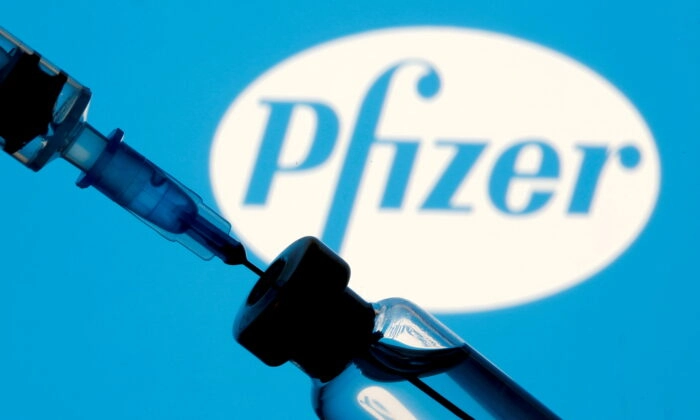UK Watchdog Accuses Pfizer of Promoting ‘Unlicensed’ COVID Vaccine on Social Media
The PMCPA ruled that Pfizer has breached its regulatory code, including ‘bringing discredit’ on the pharmaceutical industry.
Source: The Epoch Times, Aldgra Fredly, 09 April 2024
A UK pharmaceutical watchdog said that Pfizer has breached its regulatory code five times, including “promoting an unlicensed medicine,” due to a social media post made by a Pfizer employee.
The Prescription Medicines Code of Practice Authority (PMCPA) issued the ruling after receiving a complaint in February 2023 regarding a post on X that was made by a Pfizer employee in the United States.
The post included Pfizer’s press release announcing the conclusion of the Phase 3 Study of its COVID-19 vaccine candidate, which was later shared by a Pfizer senior employee in the United Kingdom.
PMCPA ruled that Pfizer has breached its regulatory code, including “bringing discredit” on the pharmaceutical industry, promoting an unlicensed medicine, and making a misleading claim.
The pharmaceutical company was also accused of “making claims that did not reflect the available evidence regarding possible adverse reactions,” and failing to maintain high standards.
The complaint raised concerns about “Pfizer’s misuse of social media to misleadingly and illegally promote their COVID vaccine,” alleging that the post lacked safety information about the vaccine.
According to the complainant, “such misbehavior was even more widespread than they had thought, extended right to the top of their UK operation and was apparently continuing to this very day.”
The complainant argued that the post has remained visible on the Pfizer UK senior employee’s X feed for over two years.
“In the circumstances the complainant thought that the British public had the right to expect Pfizer UK to have conducted some sort of audit of its social media accounts (at least of its significant accounts, amongst which they would include its UK senior employees) to ensure that anything which was similarly in breach of the code was removed—even to the extent of deleting accounts if necessary. This clearly was not done,” the complaint stated.
Social Media Post Was Not Intended to Be Promotional
Pfizer told the PMCPA that it took its commitment to the regulatory code “extremely seriously” and that it had conducted a thorough investigation into the matter.
The company claimed that the post “was not intended to be promotional in nature” and that it contained “a statement of fact of the efficacy endpoints of the study.”
Pfizer also said that there was no intent by the UK senior employee to promote or to advertise its vaccine candidate, adding that the post was re-shared “in error.”
According to the company, the senior employee was an infrequent user of X and has only 321 followers, the majority of whom are professional individuals involved in, or with an interest in, the UK healthcare and research sector.
“Pfizer UK had a comprehensive policy on personal use of social media in relation to Pfizer’s business which prohibited colleagues from interacting with any social media related to Pfizer’s medicines and vaccines,” it said.
In its response to the PMCPA, Pfizer said it has taken actions to address the complaint, including issuing a UK company-wide instruction urging employees to check their social media accounts to ensure their activity complied with the Pfizer social media policy.
“Pfizer accepted that these colleagues acted in error and these errors regretfully were likely to have resulted in the promotion of an unlicensed vaccine to the UK public in a manner that was not consistent with the requirements of Clause 2,” it stated.
However, the PMCPA stated in its report that the post has resulted in “an unlicensed medicine being proactively disseminated on Twitter to health professionals and members of the public in the UK.”
The watchdog considered that the corrective and preventative actions taken following previous breaches of the code with respect to employee activity on social media “had not been implemented to the standard which was expected or required.”
It also stated that the post made no reference to adverse events of the vaccine.
Suggest a correction





